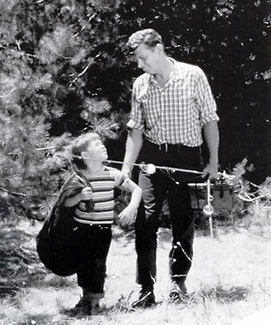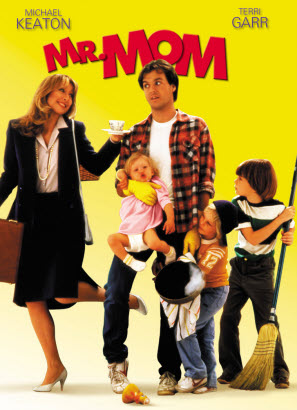
OK, this isn’t easy to admit and it is of course not something I’m particularly proud of, but I suspect that it is not uncommon among my fellow fathers. I consistently lie about Father’s Day. I lie brazenly, because not only is the truth ugly, but it would hurt my family. When my wife comes to me a few weeks or days before Father’s Day and asks, “So what would you like to do for Father’s Day?” I never give an honest answer!
“I don’t know, let’s do something as a family.”
“Let’s all go somewhere outside and have lunch and throw the baseball around.”
“Hey, maybe we could all bring our bikes down to the bike trail along the river!”
These are the kinds of answers that I give, but they are flat out lies because I do not want to do these things, I merely offer them up as enjoyable – and most importantly socially acceptable – options for Father’s Day activities.
Honest answer: “I want to stop by the specialty beer store on the way home from church, get a great Cigar and a few exotic ales I haven’t tried and then enjoy them while watching the final round of the US Open by myself. I will then fall asleep on the couch, waking up just in time to see the 17th and 18th holes and to enjoy the dinner that you, my loving wife and adoring son, have prepared for me as I dozed. How’s that?”
Now you see why it’s better to lie on this occasion. The honest answer makes me sound like a horrible dad and a rotten person.
The expectation is that Father’s Day will be spent doing father type stuff; a good father will actively father his children on this day. The social expectations are different on Mothers Day, when again the expectation is that a good father and husband will take on all the child care burdens for the day, freeing mother up from the usual motherly activities.

This line of reflection could very easily go down the road of “Men are from Mars, Women are from Venus”comedy bits, pointing out odd dichotomies that surround traditional gender rolls and societal expectations of parents. At least since Mr. Mom (1983) North Americans have been able to subtly critique our own somewhat schizophrenic attitudes about Mothers’ and Fathers’ rolls. My childhood pastor was a reliable bellwether of evangelical attitudes towards the responsibilities of fathers and mothers. Mother’s Day sermons inevitably sung the praises of hard working moms, who helped pay the bills, feed and clothe the kids, calm dad, walk the dog and still managed to get the whole brood to service on time. The sermon was largely aimed at the non-moms in the crowd: RESPECT YOUR MOMMAS! (Imagine the Oklahoma accent as you read the caps.) On the other hand, a mere eight or so weeks later, his Father’s Day sermons were contemporary jeremiads aimed squarely at the fathers in the crowd, the lazy, selfish, unaccountable, insufficiently Christian fathers! We were dropping the ball and failing to live up to the standard of fatherhood set by God himself.
As if we had much of a chance with that standard!
I think the trope of the “deadbeat dad” has something to do with the ideas about fatherhood that pervade both the larger culture and the culture within our churches. Certainly there are far too many church widows, as they used to be called in my congregation, dedicated moms who leave dad alone on the couch or in the garage every Sunday morning as they haul the kids off to church without fatherly support. Decades ago Promise Keepers was founded in part to address this issue, but I want to look instead at the phenomenon of guilt that even the best fathers tend to feel when we look honestly at our own desires surrounding the use of our free time.
For me at least, one of the real challenges of spending unstructured free time with my son is that I have a very hard time separating the kid he is today from the man I want him to become. I feel so much responsibility for raising him correctly, to be a polite, generous, articulate young man, that every moment inevitably becomes a teaching moment from my perspective. We cant just play because that is a waste of precious instruction time. There is so much to be learned and achieved that we can’t waste time on frivolity.
I have noticed, however, that my wife and my son’s grandparents don’t seem to feel this, and so they are freed up simply to enjoy the boy and their time together. I envy that sense of liberty that they enjoy and can’t help but see an important ecclesiological distinction reflected in our two ways of understanding our time with my son.
Often, I find undisciplined and unstructured free time with my son tremendously stressful and a source of anxiety. “Shouldn’t we be doing something more productive?!” This is, perhaps, my own Protestant work ethic run amuck; an almost uncontrollable eagerness to demonstrate my own worthiness through hard work and progress. And this drive always to be acting rightly and in a goal-focused manner not only fails to serve my son, but it poisons too much of our time together. And here I’l pause to make my ecclesiological point.
Too often I get frustrated with church people for their inefficiency and their casual relationship with deadlines and start times.
Do we really need three committee meetings to figure this out?
How difficult is it to start our service or our conference on time?
If you’ll just get out of the way I can paint the kitchen/hang the banners/create the mailing list/etc. in half the time!
And I find myself frustrated with the lack of progress in raising funds, or increasing biblical literacy, or gathering hands and support for new outreach projects or ministries. What is wrong with these people, I find myself thinking, don’t they know that we’re wasting time with mere play?! Why do we spend so much time shaking hands and drinking coffee when there is real work to be done and real goals to be achieved?
In my wiser moments, I am better able to see the “inefficiencies” of congregations, not as wastes of time or unnecessary rest stops along the path toward a concrete goal, but rather as the very heart and energy of our church. Shared meals and cups of coffee are not mere rest breaks, they are more often than not the real substance of our church lives, where people make genuine connections precisely because the time is unstructured and frivolity is given room to blossom.
In her wiser moments, my wife takes me aside and reminds me, “Just enjoy him.” By this she means, stop trying to accomplish something or teach something, or instill some value or skill and just enjoy the boy and the time you have with him today. I hope that this year, I can better heed her advice, both in our church and on Father’s Day. So, while I have already made the concrete request that we go hiking in the Adirondacks as a family for Father’s Day this year, I will try to care less about getting to the top of the mountain and to just enjoy more the time we have regardless of whether we reach the goal or not.

![Read more about the article “Favre” [farv] – noun, from the original French for Judas](https://liberalevangelical.org/wordpress/wp-content/uploads/2020/12/caesar-brutus-300x165.jpg)
